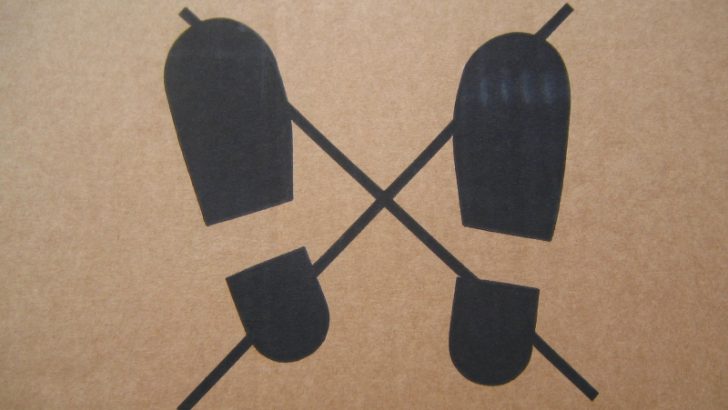
BT has produced a report that details 12 ways that companies and individuals can reduce their carbon footprint. In the report BT lists a number of offerings that can help business reduce their carbon usage in the digital age and the report highlights a few case samples.
The BT report entitled “The Role for ICT in Reducing Carbon Emissions in the UK” draws on a report sponsored by BT produced in June by the Global e-sustainability initiative and Accenture Strategy #SMARTer2030 – ICT Solutions for 21st Century Challenges. While the latter report covers the global situation the BT report is focused on the UK.
ICT has an increasing role in reducing the carbon footprint of businesses and individuals across the UK. BT has highlighted these areas and demonstrated how it feels its services can help organisations deliver change to realise the reductions through implementing ICT driven solutions. This is not just about greener IT though, it is about delivering 12 times the carbon footprint of ICT in savings to other industries.
The research carried out believes that with appropriate change, UK carbon emissions can be reduced by 24% annually by 2030. The total volume of which is 122Mt CO2e (Metric Tons of Carbon Dioxide emissions), which is the equivalent of taking 26 million passenger cars of the road.

The value for businesses is that BT estimate the work will create £122 billion in economic value and with reduce costs by £58.5 billion. The work involves not just eliminating processes that are carbon generating but also increases efficiency in other areas. While the UK is currently within the second carbon budget period (2013-2017) this report looks forward to 2030 when the fifth carbon budget will be active. The fifth carbon budget spans 2028-2032 and aims to reduce output to 1,765 Mt CO2e or 57% of 1990 levels.
In launching the report BT chief sustainability officer, Niall Dunne,commented: “The UK has always taken a leading role in ensuring we tackle climate change effectively, and our strong credentials in ICT can help ensure we continue to do so.
“The ICT industry has been at the forefront of innovation for the past three decades.We have the opportunity now to make it the forefront of the global battle against climate change, and help the UK reach its 2030 targets and beyond.”
Smart Manufacturing, agriculture and Building
The report focuses on 12 areas for improvement, some of which apply to most companies and individuals. With a current shortfall of 187Mt CO2e in the fourth budget BT believes savings of 121.7 MT CO2e could be achieved through ICT initiatives. The three areas that can most benefit from ICT investment are smart manufacturing, smart agriculture and smart building. Smart manufacturing alone using the SMARTer2030 figures has the potential to reduce carbon usage by 2,710 Gt CO2e, 2030 (Gigatons). These three industry sectors alone make up half of the potential savings.
Initiatives within Smart manufacturing include virtual manufacturing, customer centric production, circular supply chains and smart services. 3D Printing will also emerge with companies able to produce customer specific products as the sophistication and quality of 3D printers improve.
One off component parts can be printed rather than manufactured and shipped at great carbon expense from off shore locations. Global network providers such as BT will enable the transfer of data and communications between design factory and even micro factory outlets within retail stores to deliver these customer centric ideals.
One challenge to 3D printing is the risk of unauthorised and unreported production. Manufacturers are still looking for a mechanism that will ensure that customers and retailers will only be able to print what they have paid for. Despite the concerns of manufacturers this is something not addressed by the report.
Agriculture can be improved through the development of marine agriculture and IOT sensors that further increase the efficiency of manure management and fertiliser use. There are also significant benefits to be made in the area of predictive machinery maintenance. Understanding inefficiencies and pre-emptive maintenance in agricultural machinery, similar to that used in the mining industry, will help reduce carbon footprint and reduce costs for farmers.
Building Management Systems have been installed within buildings for decades, but they are rarely retrofitted. Costs are reducing however and intelligent lighting and heating systems, connected through Bluetooth and WiFi, make it possible to increase the efficiency and reduce the carbon footprint of both residential and business premises. This growth of the use of IOT in buildings is set to continue.
Smart Energy, Logistics and Traffic control and optimisation
Smart Energy is one of the main focuses of the UK government as it seeks to reduce the carbon footprint of the UK energy producers. With talk about Nuclear rather than fossil fuel power stations there is also much that the industry can take advantage of. The improving efficiency of Solar Panels and Wind Turbines means that companies with land will be able to generate some of their own power cost effectively in the future.
Companies do need to be more aware of where their data centres are located and the power sources that they use for them. One company driving a strong green initiative is Equinix. While it hasn’t announced that its UK data centres are using green power, it is aiming for all its North American locations to be sourcing renewable energy shortly.
Another US company leading the way is Salesforce, they recently announced that they have reached an agreement with Ensight, owners of a 103mw wind farm in West Virginia to supply their electricity. Ensight are also in vesting in a 400mw wind farm off the UK coast and companies should consider whether they sign up to a similar agreement.
ICT can also do more for logistics. Many companies are already deploying traffic routing technologies but more could be done especially in terms of balancing routes through built up areas against emission savings.. Sharing of both people and cargo could reduce the carbon footprint significantly.
Companies should look to reduce their own carbon footprint through the greater use of public transport and ensuring that business trips are done efficiently using optimum routes to reduce carbon footprint. Routerank is one company that delivers the carbon footprint of journeys between two locations. It is disappointing that Google maps and Bing Maps do not currently offer this automatically for their primary and alternate routes.
Connected Private transportation, E-Work and, E-Commerce
Connected private transportation is how employees can reduce carbon through route sharing, car sharing (decrease in travel). Less cars required means less car production. BT delivers a number of services around E-Work and was one of the pioneers of home working. Reducing its office space significantly as it reduced its property portfolio over the last twenty years. BT has also made it possible to work in some of the remote regions in the UK.
It’s initiative with the UK Government in Cornwall and the Scilly Isles saw 95% of homes and business connected to broadband. Enabling a work force to connect to offices located anywhere in the country in a geographic region that is remote by both distance and travel time from their “base” office. However, BT has also come under fire from the UK Government and other bodies for the time taken to deploy these high-speed Internet services to remote areas.
Working from home using cloud solutions reduces commuting and business trips, thereby reducing carbon usage. What companies still need to do and the current tax system doesn’t allow, is to work out how to remunerate employees for the use of their home as a part-time office. At present the shift to home working is seen as a cost saving from the business point of view, often at the expense of the employee. Even though the employee may make a net gain from reduction in commuting costs.
With black friday being the largest yet so far the move to E-Commerce platforms by businesses is already well under way. Fewer people have used retail stores for their Christmas shopping this year and that trend is set to continue. Less shopping trips means lower fuel consumption. It does however raise an issue of what will happen to the UK high streets as vendors struggle with costs. There will no doubt be a few announcements in March as even more retailers close their doors for ever.
E-Health, E-Learning and E-Banking
The final three and lowest impact categories highlighted in the report cover areas that affect everyone. E-Health is the delivery of health services using ICT. There are three areas that this covers: delivery of information for professionals and consumers, improving public health services (eg: education and training of health works) and enabling patients to manage their own health.
There are opportunities for business in each and BT includes an example of North Humberside NHS Trust using mobile technology to deliver information to medical professionals at the point of delivery, significantly increasing efficiency. Other examples include the recently announcements around radiology cloud services from Telstra, Dell and GE Health. Scotland has been using e-Health solutions in the form of tele-medicine for some time in order to support remote communities.
Delivering E-Learning through cloud-based technology is nothing new. Recent solutions include the delivery of bite sized training using mobile devices to employee, delivering a continuous feed of training without the need for travel costs and carbon usage in reaching classroom based training.
Many companies and individuals make trips to banks. Greater use of mobile mobile and internet banking means less travel to banks, less banks and less employees of banks. This ensures a lower footprint by both banks and individuals. With greater reliance on electronic banking and fewer cheques being written companies no longer need to make a bank run so often either with cash or cheques to deliver and pay in.
Conclusion
Both reports are well worth a read and there are several initiatives that companies can undertake that both reduce carbon footprint and reduce costs. Some of these will no doubt have been implemented within many organisations already. For those that haven’t the increasing regulation around carbon usage will mean that they should be considered.
Reducing energy consumption and “going green” has always been a “nice to have” in many board rooms. As energy prices increase over the next few years companies should consider some of these projects more urgently as they look to forecast their operational costs into the future. Implementing these changes now will mean future energy costs are significantly reduced. Waiting too long may mean that profit margins diminish faster than expected as regulatory fines and energy costs quickly mount up.
Dunne summarised the situation neatly by saying: “It is clear there is a significant opportunity for the ICT sector to help move the world closer to achieving its carbon targets. Whether these benefits will be realised depends on the collective actions of government, business and consumers – they hold the key to unlocking the potential of ICT.”


























